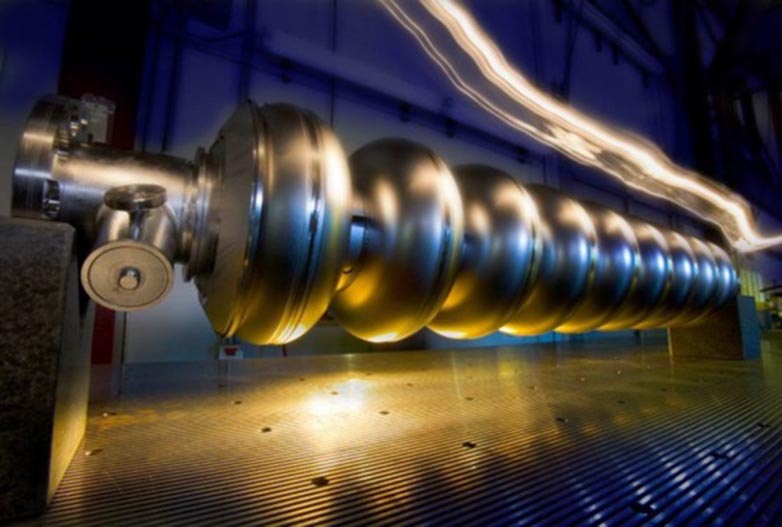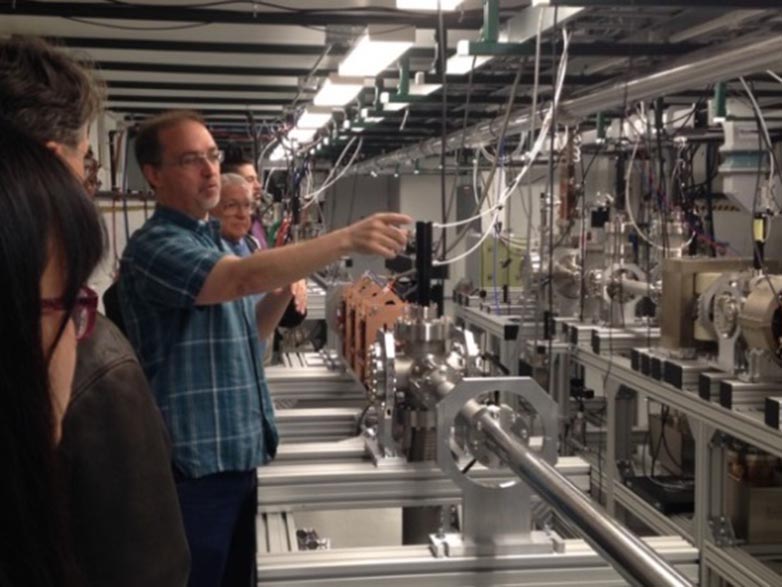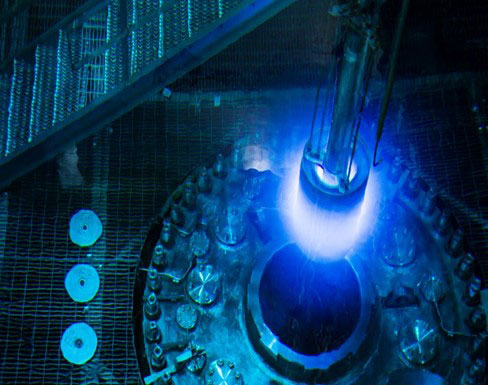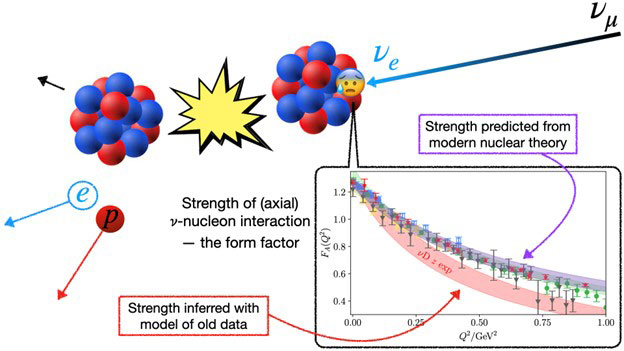Accelerator Stewardship

Image courtesy of Fermilab.
This superconducting radiofrequency accelerator cavity made from niobium was developed for the International Linear Collider, which would use 16,000 such cavities. A cavity like this could produce beams of 10-20 MeV energy electrons for industrial, security, and medical uses.
Accelerator Stewardship works to make particle accelerator technology widely available to science and industry by supporting use-inspired basic research in accelerator science and technology. Particle accelerators can provide transformational capabilities in the fields of energy and environment, medicine, industry, national security, and discovery science. Experts from across the spectrum of accelerator applications identified opportunities and challenges for particle beams in these fields in the Accelerators for America's Future report. The Department of Energy’s (DOE) Office of Science (SC) established the Accelerator Stewardship subprogram to address these challenges and develop accelerators that meet national needs. Office of High Energy Physics (HEP) hosts the Accelerator Stewardship program because significant advances in accelerator technology have been driven by particle physicists as a means to enable their discovery science and HEP directly supports many of the experts and infrastructure that make these advances possible.
Accelerator Stewardship improves access to national laboratory accelerator facilities and resources for industrial and other U.S. government agency users as well as the developers of accelerators and related technology. The Accelerator Stewardship program operates a dedicated National User Facility, the Accelerator Test Facility at Brookhaven National Laboratory, which provides a testbed for university, laboratory, and industry users to explore the science of particle acceleration and develop new accelerator technologies. The Accelerator Stewardship Test Facility Pilot Program launched in FY 2015 to enhance awareness of, and access to, accelerator test facilities and capabilities
Accelerator Stewardship develops innovative solutions to critical problems by providing grants for use-inspired R&D focused on the topics of interest identified by the federal stakeholders of the Stewardship program. Addressing these complex challenges requires cross-cutting partnerships that draw scientific and technical expertise from universities and industrial accelerator providers in addition to the specialized resources and facilities found at national laboratories. Through this process, the Accelerator Stewardship subprogram works with the broad accelerator user communities and industrial accelerator providers to develop solutions that mutually benefit our customers and the DOE discovery science community

Image courtesy of ANL.
Interested visitors hear about the capabilities of the Argonne Wakefield Accelerator at Argonne National Laboratory’s recent open house
Accelerator Stewardship broadens and strengthens the community of accelerator users and providers by engaging the entire U.S. accelerator R&D ecosystem in a coordinated manner to solve high-impact challenges. Workshops and Requests for Information are used to identify target application areas with broad impact. Early community efforts identified the initial topics of interest as accelerator technologies for ion beam therapy of cancer, laser technologies for accelerators, and energy and environmental applications of accelerators. As the program evolves, new cross-cutting areas of research will be identified based on input from the federal stakeholders, R&D performers, and U.S. industry.
HEP manages Accelerator Stewardship in close consultation with its federal stakeholders, which include SC program offices, including Nuclear Physics(NP) and Basic Energy Sciences (BES), and other federal stakeholders of accelerator technology, most notably the National Science Foundation(NSF), the Department of Defense(DOD), the Department of Homeland Security (DHS), and the National Institutes of Health (NIH).



